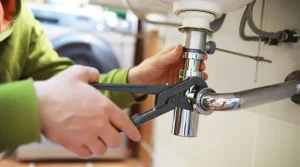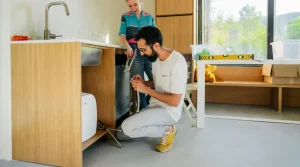The majority of UK citizens now rely on radiant heating systems to heat their homes, even though forced air heating is more popular.
Radiators may appear dated to some, yet they offer reliable and cozy heating. Interiors are kept warm by radiators without the dry heat of warm air heating, and the systems are durable. Although radiator maintenance is minimal, it’s crucial to complete it correctly to keep your system functioning effectively.
Are you ready to discover how to maintain your radiator system? Discover which jobs you can do yourself and which are better left to pro by reading on.
How Radiators Work
Hot water is what generates radiant heat. Water is put into a closed system made up of a boiler and connected pipes, and the boiler heats the water to a temperature of over 87 degrees Celsius. The hot water is pushed by a pump through the pipes and into the strategically placed radiators, which heat the area around them.
The water returns to the boiler when it has cooled. Water is continuously recycled in this closed system by being returned and heated once again. This indicates that your system is effective and consumes little energy.
Radiant heat has a lot of advantages for your home’s environment. The air surrounding you becomes dryer when using forced air systems, and dust and particulate are driven into your house. Additionally, radiant heat can be more reliable.
Cast iron, which is extremely heavy and maintains heat for a very long time, is often the material used to make older radiators. Modern radiators are constructed from steel or another lighter, less expensive material.
Care for Radiators
Simple seasonal maintenance is all that is needed to keep radiator systems functioning smoothly for many years to come. To ensure that your closed system is operating effectively, follow these steps:
Radiator bleeding
Although a boiler and the pipes that link to it are a closed system, with time, air can escape from the water. Air pockets are produced when the air, which is lighter than water, rises to the top of the radiators. It’s crucial to bleed this excess air out of the system as part of your seasonal maintenance.
Turning off the system and letting the water cooler is the first step. Alternately, you might complete this maintenance just before it starts to get chilly out before you’ve even switched it on.
The top of your radiators ought to contain a little valve. They might be operated with a unique key or by hand. Turn your valve counterclockwise while holding a bowl beneath the opening below the bleed, then listen for a hiss as air escapes.
The pressurized system will force air out when you turn the valve. Close the valve by rotating the valve key counterclockwise after leaving it open until water starts to flow. Don’t be surprised if the water in the lines appears dirty or murky; this is common.
Boiler Pressure Should Be Checked
The next thing you should do is check the boiler pressure after the system has been bled of air. A temperature and pressure gauge can be found by opening the boiler’s service panel. Depending on the manufacturer, a cold boiler should read 1.3 bar, while a hot boiler should read 1.5–1.8 bar.
You might need to add more water to the system if your boiler meets these pressure requirements. You can add more water by opening a cold water line that enters your boiler, but you should do this while keeping a close eye on the pressure gauge. When the gauge reaches 1.3 bar, close the cold water valve.
Your system will contain a pressure relief valve in case you unintentionally raise the pressure above 1.3 bar. Make sure you have a sizable bucket underneath the valve to capture any water that flows out because this valve will evacuate water to balance the system. If your gauges are initially reading too high, you can also discharge water using this valve.
Upkeep of the combustion chamber
The combustion chamber of your boiler generates the fire needed to heat the water. If the chamber gathers too much residue, it might not function properly. Due to the potential for fire, it is advisable to have a professional maintain this part of your system every few years because cleaning out the chamber can be risky.
Be careful and warm
With the help of these suggestions, you’ll be better informed about the radiator maintenance you should perform annually to keep your system operating well. A system that is kept up properly can last for decades with little effort.
Prior to performing any of these maintenance procedures on your radiator system, always exercise caution and make sure the water is properly cooled and safe. Despite the fact that radiators are extremely safe, performing any maintenance while the boiler is hot might lead to serious burns from hot water or steam.
Visit BJC Clifton Plumbers today if you’re seeking stylish, high-quality radiators.




